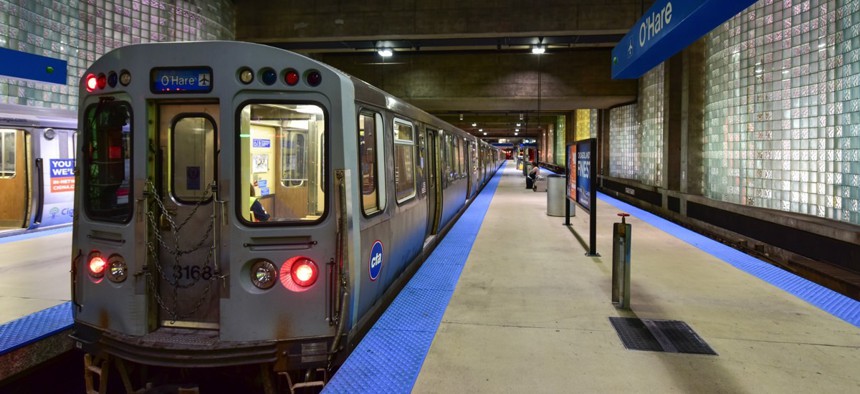Chicago Secures $1 Billion in Federal Grant Funding for Rail Upgrades

The money will go toward work planned on the city’s Red and Purple Lines.
Chicago’s Transit Authority will receive nearly $1.1 billion in federal grant funding to help pay for upgrades meant to expand rail capacity on the north side of the city, officials said Monday.
The money will go toward roughly $2.1 billion of planned work on the city’s Red and Purple “L” lines. This will include improvements to track, stations, power and signal systems, and the purchase of 32 new railcars, according to the Federal Transit Administration.
As part of the arrangement, the city had to come up with local matching funds.
In late November, the Chicago City Council approved a dedicated tax-increment financing district that will generate a projected $622 million for the project, which is dubbed the Red and Purple Modernization Program.
The CTA will provide another $427 million of funding, which will include $287 million of bonds issued in 2018, according to agency budget documents for this year.
Officials in Chicago pushed to obtain approval for the federal funding prior to President-elect Donald Trump taking office in January, amid concerns that a new administration in the White House would slow the process of securing the grant dollars.
Legislation the Illinois General Assembly passed last year cleared the way for the tax-increment financing, or TIF, district. The district covers an area along the CTA railway.
When TIF districts are formed, a base value is established for property that falls within their bounds. As property values in the district increase in subsequent years, property tax revenues in the area also rise. This tax revenue growth is considered the “increment.”
In this case, much of the incremental increase in property tax collections would go to the Red and Purple Line project.
Chicago’s Red Line is among the busiest rail lines in the CTA system. It carried about 78 million riders in 2015, figures from the agency show.
Hundreds of millions of dollars have been invested in the line during recent years.
Work on the upgrades the new federal grant funding will go toward is slated to begin in late 2018 and is expected to take four to five years to complete.
Bill Lucia is a Reporter at Government Executive's Route Fifty and is based in Washington D.C.
NEXT STORY: Pennsylvania Seeks to Close Two Prisons to Help Alleviate $1.7 Billion Budget Gap






